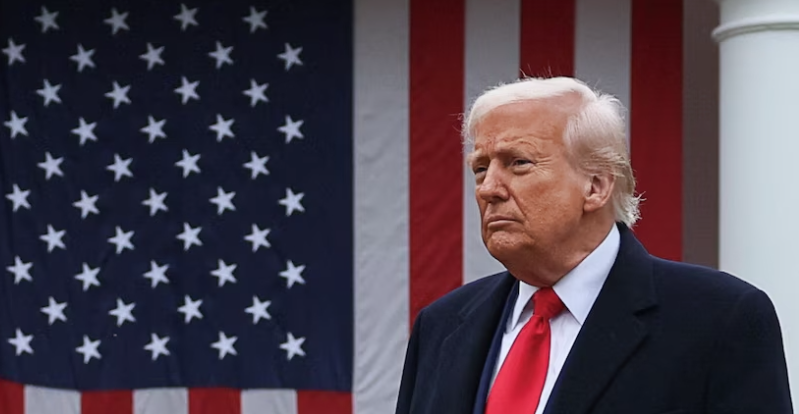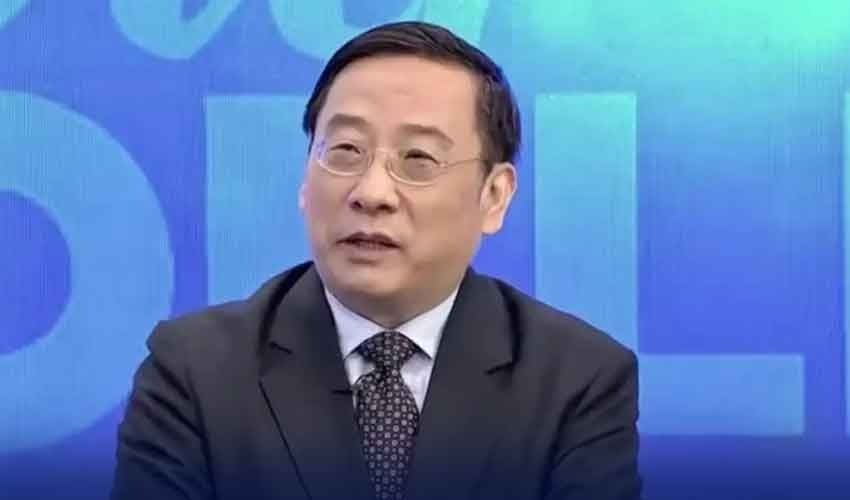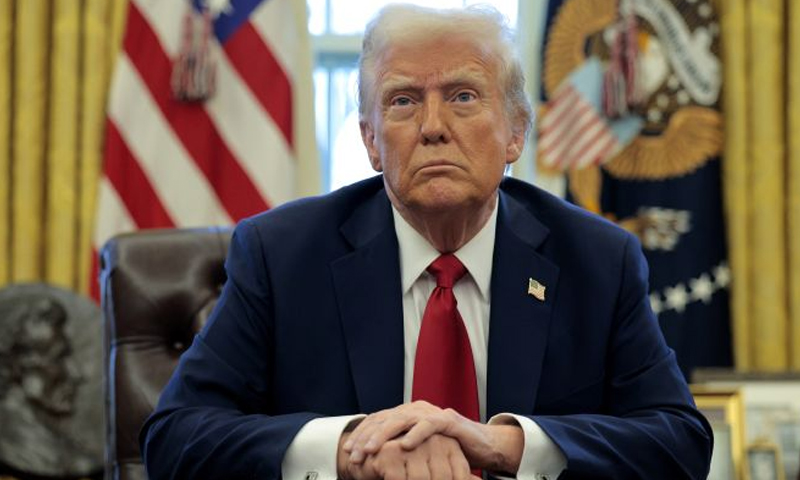WORLD NEWS

U.S. President Donald Trump announced on Sunday that he will reveal the tariff rates on imported semiconductors over the next week, signaling a significant shift in the trade relationship with China. Trump added that certain companies in the semiconductor sector may benefit from flexibility regarding the tariffs.
Speaking aboard Air Force One on his way back from West Palm Beach, Trump emphasized that the move aims to strengthen U.S. production of chips and semiconductors. “We want to make our chips and semiconductors and other things in our country,” he said. While Trump refrained from saying whether products like smartphones would be exempted, he indicated the need for flexibility in the tariff approach.
Earlier in the day, Trump took to social media, announcing a national security trade probe into the semiconductor sector, stating, “We are taking a look at Semiconductors and the WHOLE ELECTRONICS SUPPLY CHAIN in the upcoming National Security Tariff Investigations.” The announcement follows recent exclusions of smartphones and computers from steep reciprocal tariffs on China, offering a temporary relief to tech industries and consumers.
However, Commerce Secretary Howard Lutnick later clarified that critical tech products from China, including smartphones, would still face new duties. These tariffs, which could be imposed in a month or two, would fall outside of Trump’s reciprocal tariffs, which have already climbed to 125% on Chinese imports.
Trump’s tariff announcements have caused significant fluctuations in Wall Street markets, with the S&P 500 seeing its biggest swings since the COVID-19 pandemic. The broader economic impact of the escalating trade war remains uncertain, with concerns that such moves could push the U.S. toward a recession.
Bill Ackman, a billionaire investor who supported Trump’s presidential campaign, suggested a temporary reduction of tariffs to 10% for 90 days. This, he argued, could help U.S. businesses relocate supply chains from China without major disruption.
Senator Elizabeth Warren sharply criticized Trump’s inconsistent tariff policy, calling it a chaotic approach that could harm economic growth and lead to rising inflation.
Despite these criticisms, the U.S. Customs and Border Protection agency published a list of tariff exclusions on Friday, which included semiconductor devices, memory chips, and other essential tech products. However, experts like Ray Dalio, the founder of Bridgewater Associates, have warned that the U.S. could be on the brink of a recession if the trade situation is not resolved carefully.
Trump’s shifting approach to tariffs, combined with the broader uncertainty in global trade, leaves businesses and investors grappling with volatility. As the administration looks to reset its stance, the focus will remain on balancing national security concerns with economic stability.




